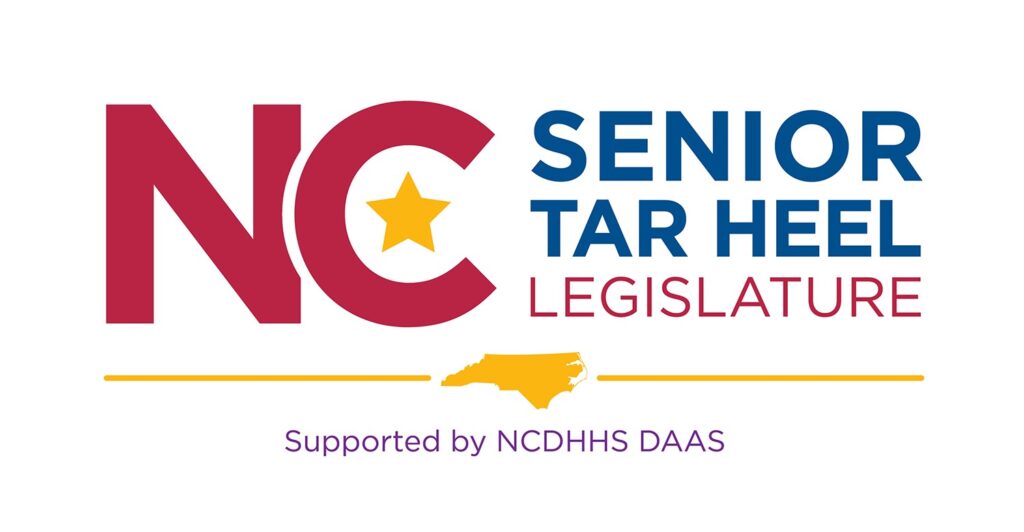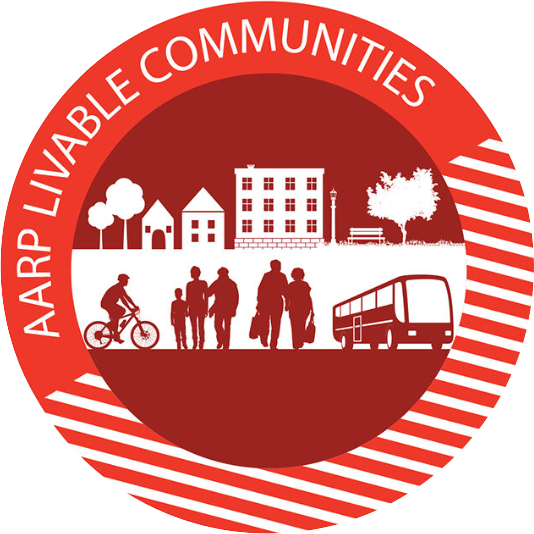An interview with long-time Durham advocate, Kenneth Johnson.
- Please describe your background, including your connections to Durham & professional career.
I began my career as a customer representative for IBM in St. Louis, Missouri, where I focused on repairing machines on-site. Later, I had the chance to transition into software—a new opportunity that brought me to Durham. This move turned out to be a blessing for my wife, who battled Sickle Cell Disease, as Duke Hospital offered a supportive community for her. Durham soon became home, and it’s where we raised our two sons.

After retiring, I found myself looking for ways to stay active and engaged. One day, while visiting a McDonald’s downtown, I was introduced to the Durham Center for Senior Life. I decided to give it a try and discovered a vibrant space filled with an incredible variety of activities.
- How do you think aging in Durham has changed over the last 10 years? What are some positives you see? What are some challenges that this community still has?
There has been a noticeable shift in focus towards the senior population, which is encouraging. Initiatives like those led by AARP, Durham’s designation as an age-friendly community, and the PACE program are positive steps forward.
However, challenges remain. Housing for seniors continues to be a pressing concern, and access to medical care for older adults is another significant issue. These priorities deserve continued attention to ensure that seniors in our community receive the support they need.
- Who are the Senior Tar Heel Legislators? What does the group do?
The North Carolina Senior Tar Heel Legislature was created as a nonpartisan, unicameral body by the North Carolina General Assembly with the passage of Senate Bill 479 in July of 1993. Its purpose is to identify the most pressing issues facing older adults across the state and propose legislation that will improve their quality of life to the NC General Assembly. The NCSTHL is comprised of delegates and alternates representing each of North Carolina’s 100 counties, supported by the Area Agency on Aging serving the state’s sixteen service areas.
- What inspired you to become a Senior Tar Heel Legislator?
After being invited to participate at the Durham Center for Senior Life (DCSL), I was asked to join the Center’s Advisory Council. This involvement opened the door to other opportunities, such as serving on the Area Agency on Aging’s Advisory Council. Later, I was invited to join the Senior Tar Heel Legislature (STHL). Once I got involved, I found it incredibly rewarding.
I have always been a strong advocate for civic engagement. Staying informed is essential—we need to understand what’s happening around us. If we want those in authority to address our concerns, it starts with awareness and participation.
- The Senior Tar Heels have released their 2025-2026 Advocacy Agenda. What are the issues that the Agenda is addressing?
1. Older Adult Housing. Alleviate the severe housing shortage by supporting the availability of safe, affordable, and accessible housing for older adults and help older adults age in place in their homes.
2. Healthcare Workforce Crisis. Alleviate the critical shortage of healthcare workers by addressing the healthcare workforce crisis through expanded financial incentives and support for individuals pursuing careers in healthcare.
3. Nursing Home Staffing Standards. Strengthen nursing home staffing standards by adopting a state required minimum staffing standard at least equal to the current federal regulatory standard of 3.48 hours per resident per day.
4. Long Term Care Ombudsman Program. Strengthen the state’s Long-Term Care Ombudsman Program by addressing staffing concerns associated with paid ombudsman positions and defining roles and responsibilities of the county volunteer committees that monitor conditions in facilities.
5. New Community-Based Services Program. Establish a funding stream of at least 2 million dollars to be administered by the Division of Aging, outside of the constraints of the Home and Community Care Block Grant program, that supports services allowing recipients 60+ to live in their homes safely as long as possible.
6. Senior Centers. Develop a plan to implement and fund a strong network of robust senior centers for all counties in the state, to ensure socialization and well-being, to provide information and education, to perform triage in providing appropriate assistance services, and to prevent debilitating isolation that impacts health and overall quality of life.

7. Home & Community Care Block Grant. Create policies that rebalance the recurring system of in-home services versus institutional care, including budget appropriations to ensure continuity of home- and community-based annual services and supports (HCCBG) to address the rising number of older adults.
8. Adult Protective Services. Pass statutory changes recommended by the Adult Protective Services Improvement Design Team and provide recurring state funding to support needed capacity to protect all vulnerable older and disabled adults across the state.
- Civic Engagement is a domain in the 2025-2030 Durham Comprehensive Aging Plan along with Employment. The Plan’s focus on Civic Engagement is on voting, volunteering, joining with other individuals to improve quality of life in Durham, etc. Why do you think it is important for aging adults in Durham to participate in Civic Engagement activities?
The way that our government works is we elect people to go to the legislature to represent us. However, if we don’t actively communicate our concerns, those issues may go unaddressed in the legislative process. Older adults represent a significant voting bloc. If we can energize the group, we can assert our influence on the legislature.
- How do you stay informed about issues that are important to your advocacy work?
I receive a great deal of information from the Area Agency on Aging. In addition, I read newsletters that are published by other senior advocacy groups. AARP is also a great resource.
- Please share 2-3 recommendations for how other adults can stay informed?
The NC Department of Health and Human Services has a segment dedicated to aging: https://www.ncdhhs.gov/divisions/division-aging
You can also review North Carolina’s multisector plan for aging (“All Ages, All Stages NC: A Roadmap for Aging and Living Well”) All Ages, All Stages NC Plan | NCDHHS.
- How can people get connected to the Senior Tar Heel Legislators? How can individuals support the Legislators’ work?
The STHL’s website is https://www.ncdhhs.gov/divisions/aging/division-aging-councils-and-committees/nc-senior-tar-heel-legislature
The website is a way to learn more about our initiatives. I am the alternate STHL delegate for Durham County. The NC Legislature has a website where you can put in your home address and locate your legislators – Find Your Legislators – https://www.ncleg.gov/findyourlegislators. You can use the contact information to let your legislators know that you would like their support of the Senior Tar Heel Legislators proposals.
The NC Coalition on Aging also shares information about senior issues – https://nccoalitiononaging.org/
- Any final thoughts that you want to share about Civic Engagement, advocacy or the Senior Tar Heel Legislators?
The importance cannot be overstated. We have the type of government where we elect representative to work on our behalf. If you do not participate, your needs won’t be addressed. There is a great deal of apathy among the voting population. For example, the Older Americans Act provides services and support to older adults and is reauthorized every 5 years. We have to let them (elected officials) know that it is something we want them to support. As we age, our needs increase. By not being involved, you get left behind when decisions are made about how resources are allocated.

